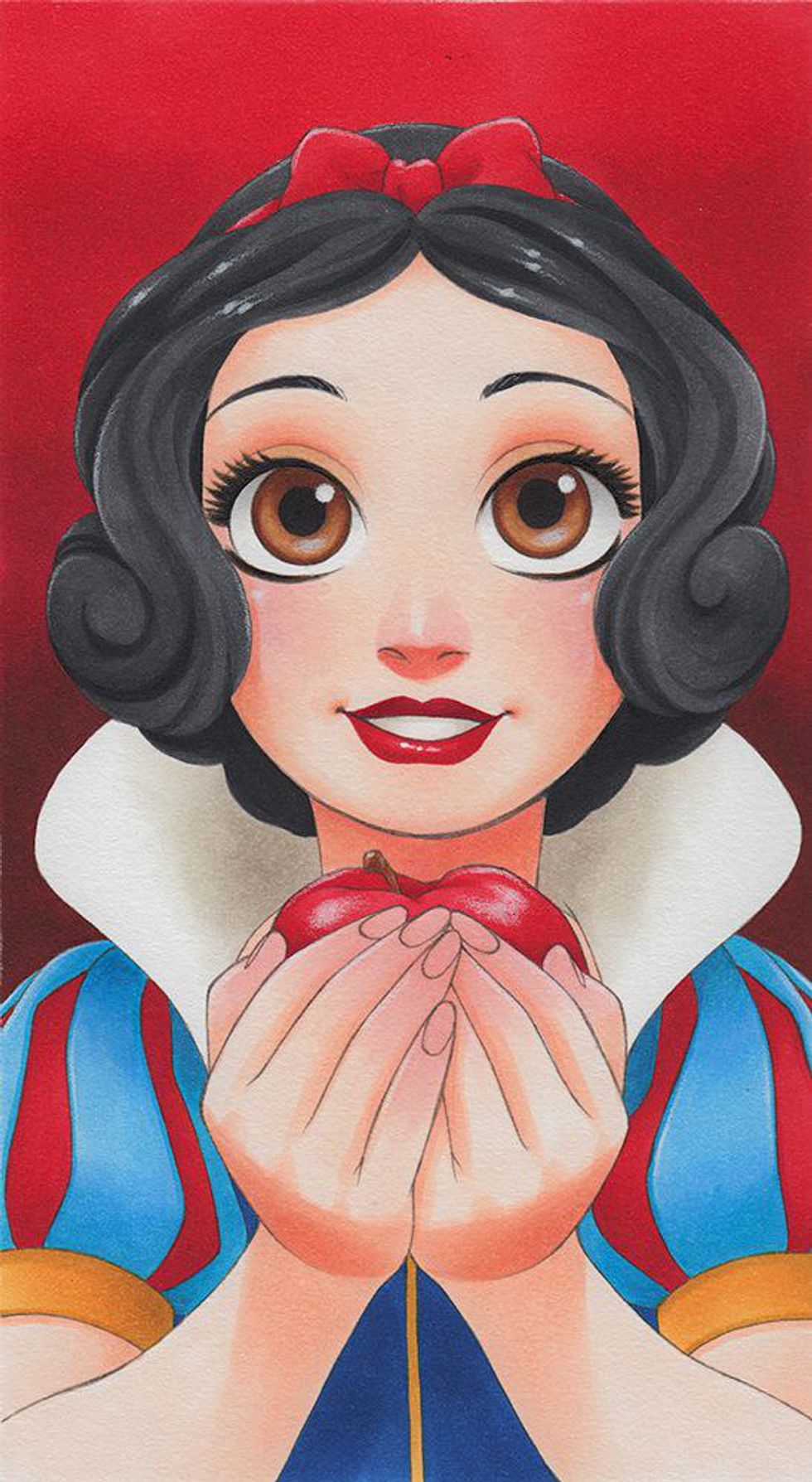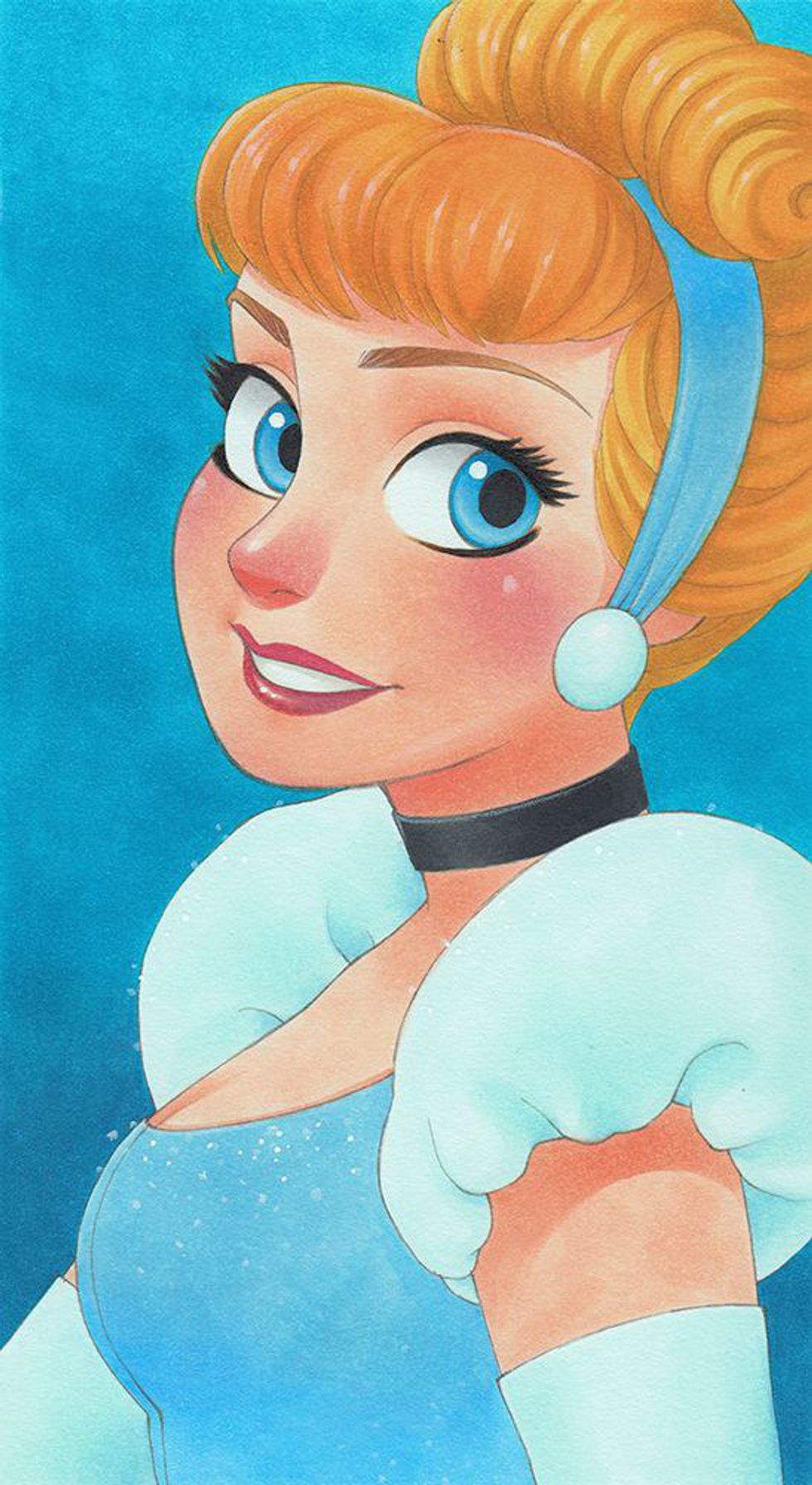The main arguments for defending these girls are their time periods; women and society's expectations for them were simply different when Disney developed them for screen. Both Aurora and Cinderella were born during the 1950s and Snow White in the 1940s. Compared to the achievements women strive for today, modern viewers either deem them as feeble or fictional victims of cultural circumstance. However, I see more. These young ladies are timeless for a reason, and not just because of their beauty or Disney's cinematic genius, but because Cinderella, Sleeping Beauty, and Snow White remind us of a basic human and spiritual truth the world has forgotten in the midst of hyper-individuality and personal achievement: not every fight is with a sword or a fist. The greatest wars wage between the hearts of men and women, some fighting for what they think they deserve, and others fighting against what they didn't deserve. Within these films is the classic befuddlement of the world: why evil appears to triumph and good seems to suffer. Disney's Classic Princesses, within their own stories, each find the key to winning their own battles that perhaps we can use too.
THE IMPORTANCE OF FAMILY: Having an Extra Pair of Eyes
As we all know, Maleficent cursed Aurora shortly after the princess was born. Her being a baby at the time, of course, she had no way to defend herself, and so had to depend on her parents and the three fairies to do right in protecting her. For 16 years (and even afterwards), Aurora did not know a vengeful goth villain was hellbent on finding her and hurting her, the truth of her royal heritage, or even her real name. In her mind, she was Briar Rose, a gentle, nature-loving peasant who was dearly loved by three doting aunts. Yet, audiences still somehow scold her not being able to fight a threat she had no idea was there. Little do they know how frightened they'd be if they ever really thought about it. All that time, right under her nose, lurking in the shadows, creeping at her back like a silent predator was a danger that Aurora couldn't fight, didn't know to fight and before she knew it, had her in its jaws. Thankfully, she was in possession of something she never thought she'd need in that capacity, a weapon tougher than steel and more precious than jewels: the love of family. Family doesn't have to be biological; it can be adopted. Merryweather, Flora, and Fauna adopted Aurora and they are the people who love you, protect you and fight for you when you can't. The three fairies faced the mistress of all evil for Aurora, gave up their magic to raise Aurora and for a brief moment (before interruption) considered trying to break off Aurora's arranged marriage so she could marry her true love. The challenges we face aren't always visible or head on; some dangers are so subtle we hardly notice their approach at all and on those days. In those situations, family comes in great handy.

What most seem to forget about Snow White is that she's a 14 year old girl who's been made a slave in her own home after her fearsome stepmother murdered her father ensuing her mother's death. Snow White had no wealth, no army, and since her stepmother's arrival, no true home or real family. Save that of her animal companions, who, as well meaning as they were, had their limits. Snow White is the epitome of the undeserving victim. She has had everything stolen from her, leaving only her dignity and hope for a better life. Therefore, each time she was in danger, she had no way to fight back. She was a young girl against a towering huntsman with a dagger, a powerful, jealous and raging step-queen and the dangerously indifferent attitude of nature. The only weapon she had was her humanity and her ability to recognize that humanity and inherent worth in those around her. This would in turn stir the compassion of others, such as the huntsman not having the heart to slay her and the loyalty of the animals to find her shelter. To blame Snow White for not conjuring up a miraculous army and running her stepmother through like most demand is the same attitude people exude when they judge the homeless lazy or the battered woman weak. The bravery that Snow White has to say, "I am alone, I am scared and I have no place to go. Please help me" is the hardest thing anyone can do and deserves far more credit than it's given. Sometimes, we have no choice but to depend on the kindness of strangers, and unbeknownst to many, this is not a weakness. It is truth.
THE MEANING OF SELF SACRIFICE: Looking Out for Others
Cinderella is similar to Snow White in losing nearly everything rightfully hers with the added bonus of Lady Tremaine not attempting to have her heart carved out, but where Cinderella differs from Sleeping Beauty or Snow White, is that the danger Cinderella faces is purely emotional/mental. This princess could escape her circumstances without threat of death or physical harm. So why did she stay? My theory: the animals. Gus and the other animals were under Cinderella’s protection, and the best way to protect them was to stay. Tremaine probably controlled the assets of the estate. Who would take care of them if she left, protect them from Lucifer, and make sure they were properly fed? Especially in a house with a cruel stepmother and narcissistic stepsisters. If only for that reason alone, Cinderella couldn’t leave. But of course, to look out for them was no duty but a joy as we see at the end would be shared by Cinderella and all loyal to her. As Cinderella rides off in her carriage to her happy ending we see the mice, Bruno and Major, her father’s horse, dressed in luxury, present at the castle and participating in the ceremony. Cinderella fought not only for herself but everyone around her ,and unknown to the princess at the time, made sure that her blessings would be theirs as well.
In each of these stories, there is a point where evil believes it has won; Snow White dies (temporarily), Aurora is put to sleep, and Cinderella is locked in a room in high tower with supposedly no means to escape. Yet every time, the princesses’ good natures, and the connections they made in their empathy and kindness come full circle and deliver in abundance. Snow White’s stepmother is not only dead, but she is united with her prince and on her way to a golden kingdom. Sleeping Beauty awakes to her true love, a Maleficent-free existence, and reunites with her birth parents. Cinderella marries the prince Charming she wasn’t even looking for, and rides off into the sunset with a new title, power and love. These princesses everyone deem as weak and demure are in fact, wise and resilient in a world no different from ours. I’m sure Flora, one of Aurora's fairy aunts, didn’t mean to be a prophet when she said Maleficent (and others like her) didn’t know anything about love or kindness or the joy of helping others, but I guess that’s the magic of it all.










 The minimum wage is not a living wage.
StableDiffusion
The minimum wage is not a living wage.
StableDiffusion
 influential nations
StableDiffusion
influential nations
StableDiffusion











